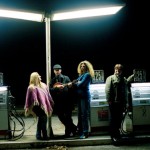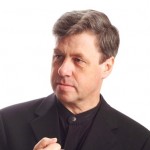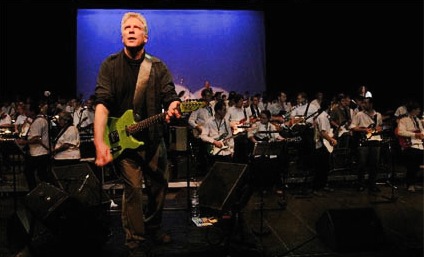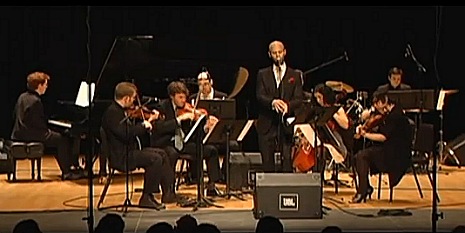Let’s just say that “life” has distracted me a bit lately from my updates here. But, for those of you who have been following, you know that the good times never ended and that podcast episodes have been arriving on schedule.
So, where were we?
 July wrapped up Parts III-IV of interviews with the members of ETHEL. What did we learn here? Perhaps the cliché that a quartet is more than the sum of its parts? Am I the only one who is continually amazed that ensembles like string quartets even work? Can you imagine committing yourself to playing for years and years with three other people whose attitudes about music are seemingly totally different? Maybe that’s where the special magic comes from: the coming together of opposites.
July wrapped up Parts III-IV of interviews with the members of ETHEL. What did we learn here? Perhaps the cliché that a quartet is more than the sum of its parts? Am I the only one who is continually amazed that ensembles like string quartets even work? Can you imagine committing yourself to playing for years and years with three other people whose attitudes about music are seemingly totally different? Maybe that’s where the special magic comes from: the coming together of opposites.
All four interviews are still available by clicking here:
Part I with violinist Cornelius Dufallo
Part II with violist Ralph Farris
Part III with cellist Dorothy Lawson
Part IV with violinist Mary Rowell
 With August upon us, what’s next? This month is devoted to two international musicians, conductor Paul Hillier and violist William Lane. Paul’s episode is now available, and William’s will be up August 23rd. I really want to thank Paul Hillier for agreeing to be part of this project; I have so much respect for him and the amazing musicians he works with. The big take-away from his episode is, basically, to think global and act local. He has great advice for composers considering sending their music to musicians in other countries—especially musicians you have never met! You can listen to Paul’s interview here.
With August upon us, what’s next? This month is devoted to two international musicians, conductor Paul Hillier and violist William Lane. Paul’s episode is now available, and William’s will be up August 23rd. I really want to thank Paul Hillier for agreeing to be part of this project; I have so much respect for him and the amazing musicians he works with. The big take-away from his episode is, basically, to think global and act local. He has great advice for composers considering sending their music to musicians in other countries—especially musicians you have never met! You can listen to Paul’s interview here.
Before I sign off, let’s take a quick look ahead into the fall and winter – I can’t resist! You might remember or notice that the podcast is making an effort to engage with musicians outside of New York City. September will feature musicians from Chicago, and October will feature California. January will feature Boston, and February will feature Seattle!
You can subscribe to the podcast here and here. You can send comments or suggestions here.


 For all you Angelenos and outlying: word from
For all you Angelenos and outlying: word from 
stephanieberger2009.jpg)
